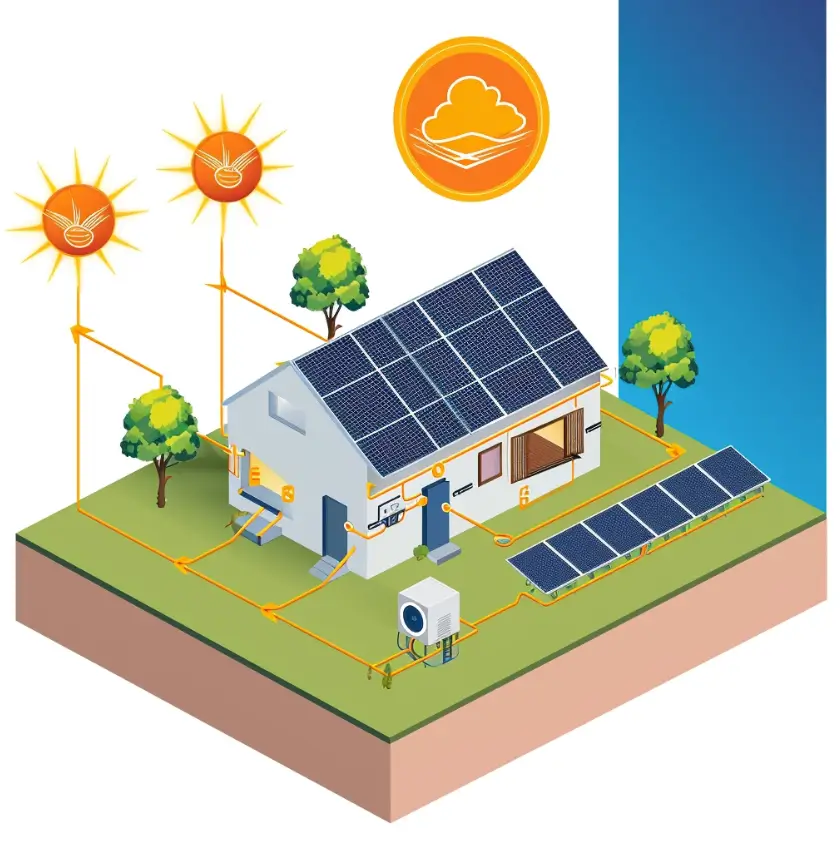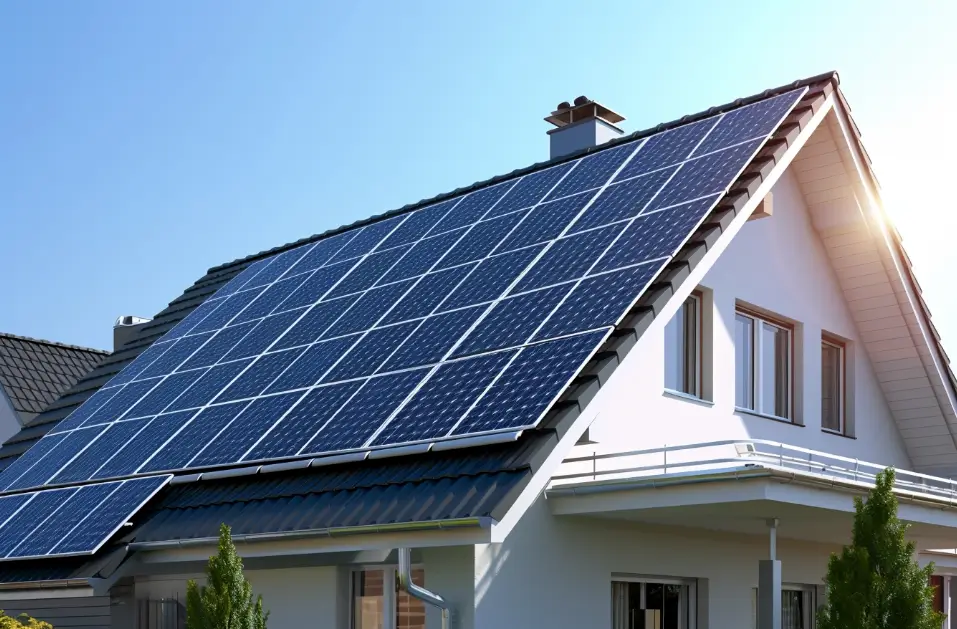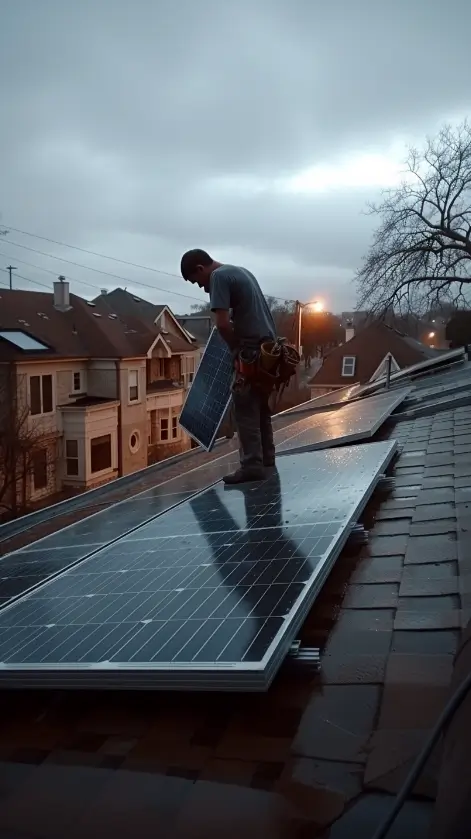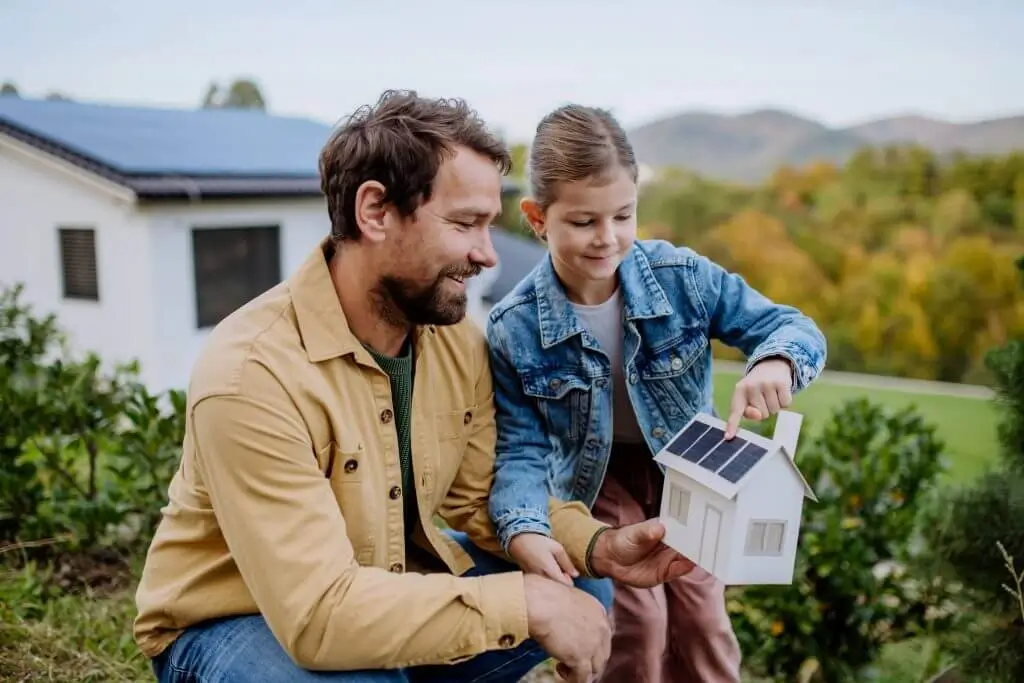Solar panels are an increasingly popular choice for homeowners seeking to reduce their carbon footprint and lower their energy bills. They offer a clean and renewable source of energy that can power your home while significantly reducing your reliance on traditional grid electricity. However, a common question that arises during the decision-making process is “should I get more solar panels than I need?”. In this comprehensive guide, we will explore the factors to consider when deciding on the size of your solar panel system. By the end, you’ll be better equipped to make an informed choice that suits both your energy needs and your budget.
Before diving into the considerations of whether to install more solar panels than necessary, it’s essential to understand how solar panel systems are sized. Solar panel systems are typically sized based on your energy consumption, expressed in kilowatt-hours (kWh). Here’s a simplified breakdown:
Start by analyzing your past electricity bills to understand your average monthly and annual energy consumption. This information helps you gauge the size of the solar system needed to offset your electricity usage.

The amount of sunlight your location receives is a critical factor. Regions with more sunlight can generate more electricity per panel, allowing for a smaller system. Conversely, areas with less sun may require larger systems to compensate.
Solar panel efficiency varies, so you’ll need more panels if you choose less efficient ones. High-efficiency panels can generate more power with fewer panels.
Budget plays a significant role. Larger systems cost more upfront, but they can yield greater long-term savings on your electricity bills. Smaller systems may have a lower initial cost but could lead to higher electricity costs over time.

Now, let’s explore the advantages and disadvantages of getting more solar panels than you need for your home.
1. Energy Independence: A larger solar panel system can potentially produce enough energy to cover all your electricity needs, making you less reliant on the grid and reducing your electricity bills to near zero.
2. Future-Proofing: If your energy needs increase in the future due to a growing family, electric vehicles, or other factors, having extra solar panels can help accommodate these changes without requiring a complete system overhaul.
3. Enhanced Property Value: Homes with larger solar panel systems often have higher resale values, as they appeal to eco-conscious buyers looking for energy-efficient properties.
4. Environmental Impact: Generating more clean energy can have a more significant positive impact on the environment by reducing greenhouse gas emissions and fossil fuel consumption.

1. Higher Initial Cost: Installing more solar panels than you need upfront will result in a higher initial investment. You’ll need to consider whether the long-term savings justify this additional cost.
2. Space Limitations: Not all homes have sufficient space for a larger solar panel array. Roof size and shading issues may restrict your ability to expand the system.
3. Grid Connection Issues: In some regions, grid connection regulations may limit the size of the solar panel system you can install. It’s essential to check with your local utility company to ensure compliance.
4. Return on Investment: A larger system may take longer to pay off the initial investment, especially if you generate excess electricity that you can’t sell back to the grid or store.
Side note: Batteries for OFF-Grid systems: If you are considering an Off-Grid system then batteries will be of high importance, of these there are many options, but the basics are lead-acid, gel, or lithium. With Lead-acid and Gel being cheaper and Lithium being the more expensive option, however, Lithium batteries far outperform the Gel and Lead-acid versions in the long run, as they last up to 10 years normally whereas lead-acid and gel may last a maximum of 3-5 years if properly maintained.
Now that you’re aware of the pros and cons, let’s delve into the key factors to consider when deciding whether to install more solar panels than you need:
1. Energy Consumption:
Start by calculating your current energy consumption. Review your electricity bills from the past year to determine your average monthly and annual usage. This data will be the foundation for estimating the size of your solar panel system. If you plan to make energy-efficient upgrades to your home, consider these changes in your calculations.

2. Solar Panel Efficiency:
High-efficiency solar panels can generate more electricity with a smaller footprint. If space is limited, investing in more efficient panels may be the solution. However, these panels often come with a higher price tag, so weigh the upfront cost against the long-term benefits.
3. Available Roof Space:
Evaluate your available roof space. Larger homes with ample roof area can accommodate more panels, whereas smaller or shaded roofs may have limited capacity. A professional solar installer can assess your roof and advise on the maximum number of panels it can support.
4. Budget:
Consider your budget and financial goals. Installing more solar panels than needed will increase the initial investment but may provide greater long-term savings. Calculate the payback period to determine when you’ll start seeing a return on your investment.
5. Future Energy Needs:
Think about your future energy needs. Do you plan to expand your family or purchase an electric vehicle? These changes could increase your energy consumption, making it beneficial to install a larger system now to meet future demands.
6. Grid Connection Regulations:
Check with your local utility company regarding grid connection regulations. Some areas have limitations on the size of solar panel systems or may require special permits for larger installations.
7. Net Metering Options:
Investigate your options for net metering, which allows you to sell excess electricity back to the grid. If your utility offers favorable net metering policies, you may find it more financially viable to install a larger system.
In the end, the decision to install more solar panels than you need is a balance between your current energy consumption, future plans, budget, available space, and environmental considerations. It’s essential to conduct a thorough assessment of your situation and consult with a professional solar installer to determine the optimal system size for your specific needs.
Remember that solar panels are a long-term investment, and your choice will impact your energy bills and environmental footprint for years to come. By carefully considering these factors, you can strike the right balance between generating clean energy and managing your budget effectively.
Ultimately, whether you choose to go slightly over your energy needs or opt for a system that perfectly matches your current consumption, embracing solar power is a commendable step towards a more sustainable and energy-efficient future. Evaluate your options, make an informed decision, and reap the rewards of cleaner, more affordable energy for your home.
Powered by Healthy Digital | Privacy Policy
Proudly Serving, Denver, CO, Colorado Springs, CO and surrounding areas.